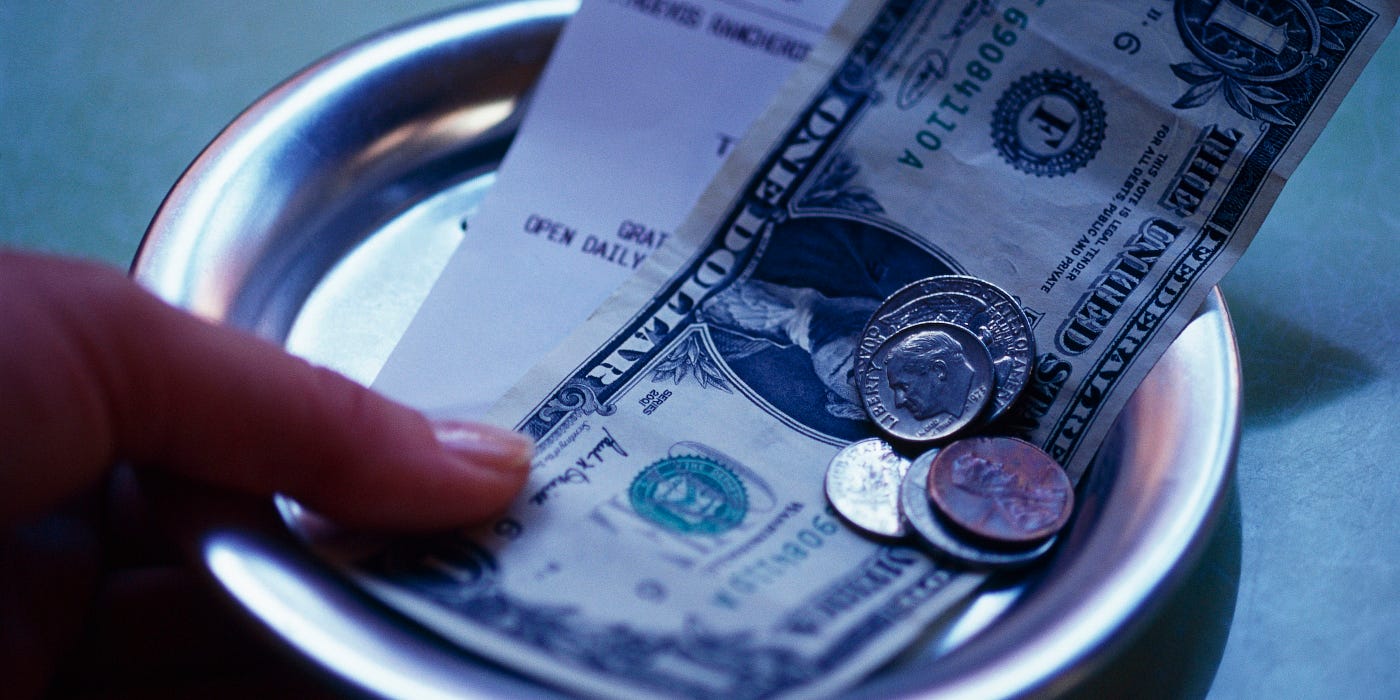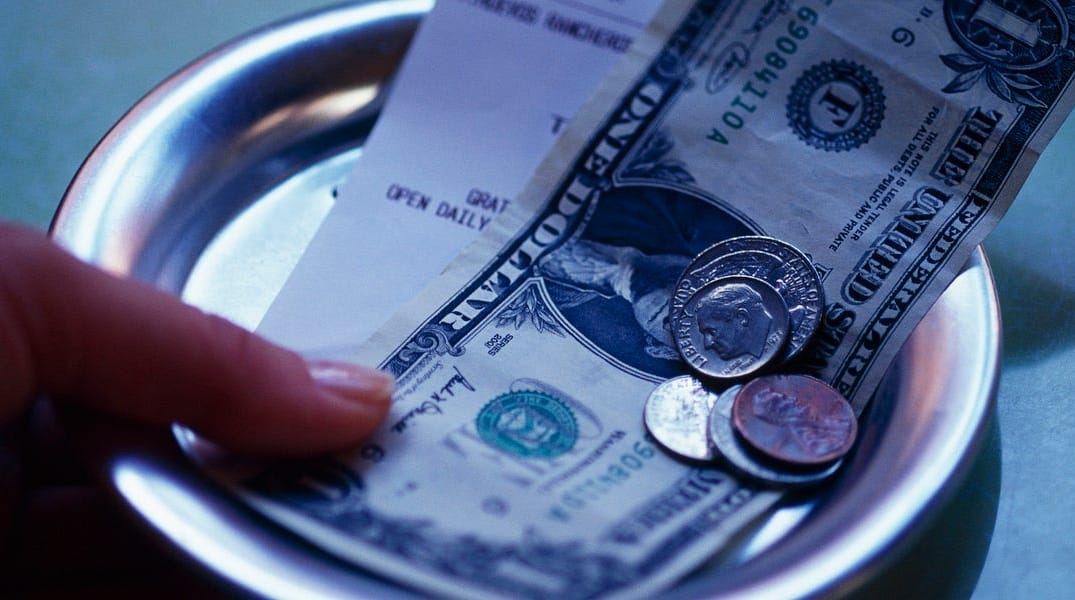
By Jules Suzdaltsev
As the minimum wage slowly begins to rise in California, the reaction by those businesses who’ve relied solely on cheap labor to turn a profit has been to close their doors or relocate to cut costs. But in San Francisco, Oakland, and Berkeley, five restaurants are making up the difference by eliminating tips altogether, in favor of a 20% mandatory surcharge.
The new policy from restaurants Comal, Camino, Duende, Bar Agricole, and Trou Normand states that these restaurants won’t accepting any additional gratuity. According to SFGate, it is supposed to move servers to a merit-based system of compensation, and result in a higher hourly wage for the kitchen staff. While the move may seem pragmatic to some, it is certainly unfavorable for wait staff, who will lose their current merit-based wage at the expense of paying out to the rest of the restaurant — this cash will not only be distributed to the rest of its employees, but also pad out the owner’s profits. In 2008, Starbucks was fined $105 million for taking its barista’s tips to be shared amongst supervisors, however a surcharge avoids this type of lawsuit, as this money isn’t technically “tips.”
Although tipping does feel like a long outdated concept sometimes, the shift towards allowing managers and owners control over a merit-based dispensation of these nightly bonuses makes it difficult to justify the purpose of tipping at all. Instead it seems like a way to raise prices without making it seem like that’s what’s going on. In most jobs, merit-based rewards are considered actual bonuses, and are not required or guaranteed — many waiters take on the job because of how much money they can take home in tips at the end of the night. The system as it is now starves out bad waiters, and isolates repeat bad tippers. It should be noted that the new surcharge would also be taxed, both for servers and customers, tacking an additional 2% to the existing 20% charge.
Jay Porter, owner of Half Orange in Oakland, tried the concept of a surcharge in lieu of tipping. He wrote in a blog post that “A certain small number of very vocal men (and it was always men who were vocal about it) resented that we were not letting them try to exercise additional control over our team members,” and compared tipping to giving money to a stripper. He even described being called a douche for his policy. However, he also pointed out some key arguments against tipping, including lack of laws governing “tip pay out” by wait staff to the rest of the restaurant, and the fact that most people tend to tip the same amount, regardless of service.
Despite the negatives associated with this change, Porter asserts that not only did the quality of the food get better, but with less of a hassle about tipping, the restaurant ran more smoothly, and patrons had few complaints. In a New York Times article about Porter’s restaurant, one of his servers said, “For the first time, I get to concentrate on the job, and I’m looking at the guests without seeing dollar signs,” ostensibly making for a less stressful work environment. Only time will tell if this new system is attractive to consumers, or if they’ll be known as the spots with “mandatory tipping” and ignored.
Got a tip for The Bold Italic? Email tips@thebolditalic.com.
Image from Thinkstock







